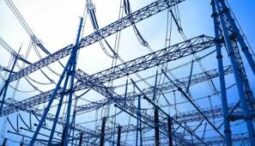Tinubu Moves to Settle N2tn Power Sector Debt, Restore Electricity Supply Confidence…The Nigerian federal government has embarked on a major initiative to resolve a lingering financial crisis in the country’s electricity sector, as President Bola Tinubu approved a multi-pronged plan to clear debts owed to power generation companies (GenCos).
This decisive move aims to ease the burden on the power sector and improve the overall electricity supply situation across the nation.
The debt, which exceeds N2 trillion, has accumulated over several years and has severely undermined the capacity of GenCos to deliver stable and reliable power.
Many of the generation firms have struggled to meet operational costs, maintain infrastructure, and pay for gas supplies due to non-payment by government-owned bulk purchasers.
The ripple effect of this debt has also affected gas suppliers, many of whom have withheld services, further exacerbating electricity shortfalls in the country.
According to the Minister of Power, Adebayo Adelabu, the government has already disbursed N205 billion to some of the GenCos as a first step in the repayment process.
He confirmed that additional payments will continue throughout the year as part of a phased approach designed to restore financial stability in the power value chain.
These payments are being made through a combination of direct cash infusions and promissory notes, a strategy intended to immediately ease liquidity constraints while also providing long-term certainty to the affected companies.
The government’s broader objective is to clear a total of N3.3 trillion in outstanding liabilities within the power sector.
This amount includes debts owed not just to the GenCos, but also to gas suppliers who play a critical role in fueling many of Nigeria’s power plants.
The administration believes that resolving these debts is essential for revitalizing the sector, attracting investment, and preventing a total collapse of power infrastructure.
READ MORE: Russia, Ukraine Agree to Swap 12,000 War Dead as Partial Ceasefire Begins
In addition to the ongoing payments to GenCos, the government has adopted a structured payment solution to settle an even larger N2.7 trillion in gas supply debts.
This payment mechanism is designed to ensure that gas providers are compensated promptly, thus guaranteeing a steady supply of gas to thermal power stations.
Industry experts have long warned that unless these debts are resolved, Nigeria risks experiencing frequent blackouts and further deterioration of its already fragile power network.
Support for the government’s debt-settlement strategy has also come from international financial institutions.
The African Development Bank (AfDB) has commended the initiative, describing it as a critical step toward restoring investor confidence in the country’s energy sector.
The AfDB noted that stabilizing the financial ecosystem of the power sector is essential for enabling further investments in infrastructure and innovation, both of which are necessary for long-term improvements in electricity generation and distribution.
Prominent business leaders have also weighed in on the development. Tony Elumelu, chairman of Transcorp Power, expressed support for the Tinubu administration’s resolve to address the sector’s longstanding financial problems.
He urged the government to ensure timely execution of the settlement plan, noting that swift implementation is vital for restoring trust among stakeholders and preventing further disruption to power generation.
The situation has reached a point where urgent action is necessary to avert a deeper crisis.
Several GenCos have already issued warnings about the unsustainable nature of their operations without immediate intervention.
The payment plan, while ambitious, is seen by many as the most viable route to stabilizing the sector and ensuring continuous power supply to millions of Nigerians.
If successfully implemented, the debt settlement plan could mark a turning point in Nigeria’s long-troubled electricity sector.
By addressing the root cause of the financial shortfall, the government hopes to unlock investments, promote transparency, and ultimately deliver on its promise to improve power availability across the country.




